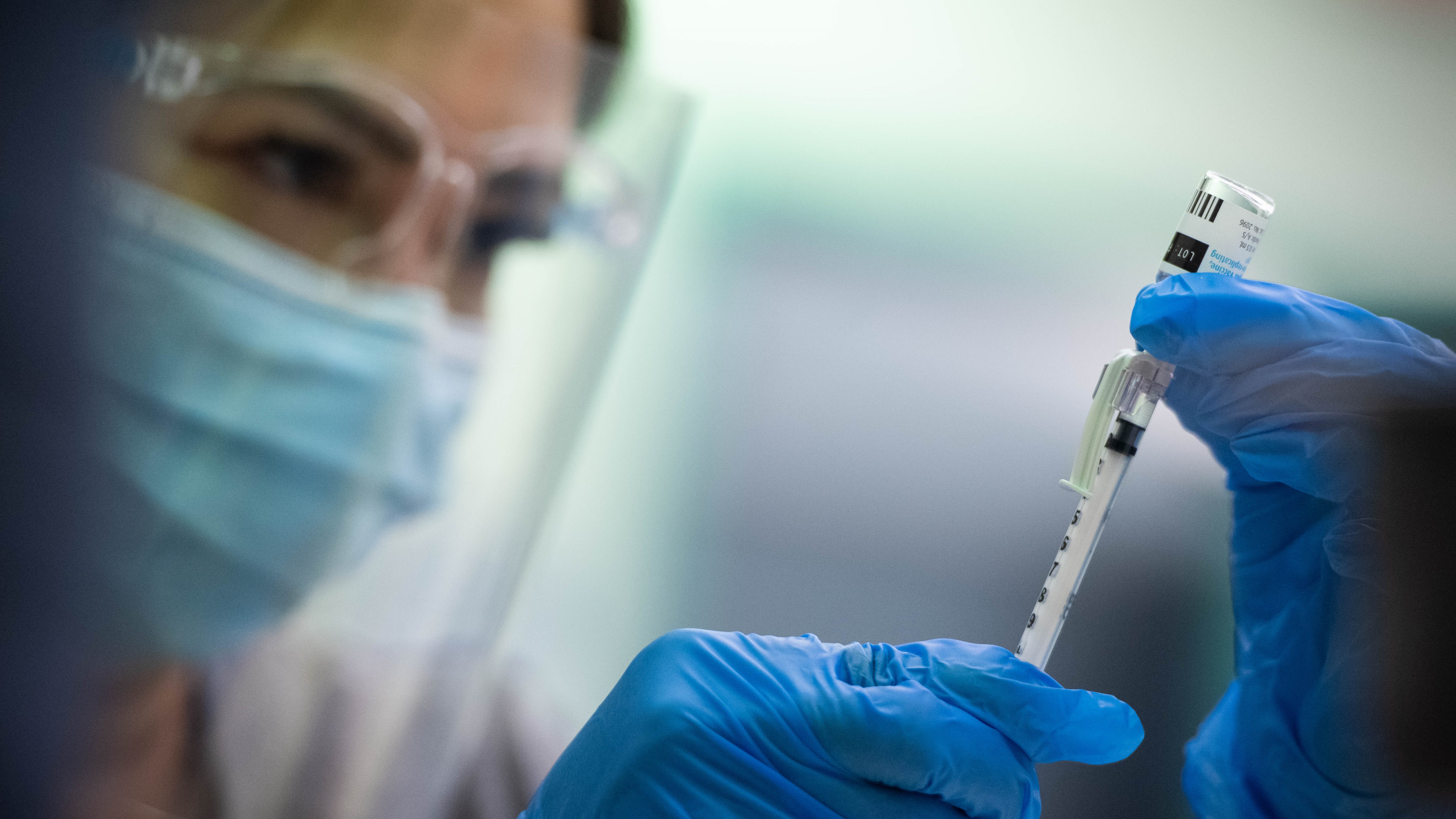As Boston University refutes sensationalist reports that their researchers created a new, more "deadly" COVID strain, local doctors who have been tracking the course of the pandemic are saying that the study could reveal important information to combat the virus.
The reports sparked controversy and some friction between the university and the federal government, but Boston doctors explained during NBC10 Boston's weekly series, "COVID Q&A," that there are strict protocols involved in this type of research and that the potential risks are always weighed against the benefits.
"I can tell you that there's nothing more important in my lab than making sure that people don't get infected with what they work with," Brigham and Women's Hospital's Dr. Daniel Kuritzkes said. "So, yes, we as virologists take these concerns very, very seriously. But it is important for the work to be done."
BU's National Emerging Infectious Diseases Laboratories have been studying the omicron variant and the original strain to see if omicron, while highly contagious, was still less likely to cause severe illness.
The subsequent scrutiny centered around whether or not researchers were doing what is called a gain-of-function experiment, Kuritzkes explained. In these experiments, scientists make a pathogen more virulent to see if it can more easily cause disease or resist the drugs that are used to treat it.
But Boston University denied doing such an experiment on COVID in a statement, calling online reports Monday "false and inaccurate."
“First, this research is not gain-of-function research, meaning it did not amplify the Washington state SARS-COV-2 virus strain (original virus from 2020) or make it more dangerous,” the university said. "In fact, this research made the virus replicate less dangerous."
The National Emerging Infectious Diseases Laboratories, at the BU Medical Campus in Boston's South End, contains facilities that have biosafety level ratings of two, three and four; the school said the work was conducted in a level three-rated facility, the second-highest level. Read more about biosafety ratings here.
Kuritzkes noted that the research was reviewed and approved by the Institutional Biosafety Committee and the Boston Public Health Commission.
"There's a wide range of different kinds of experiments that can be done of different levels of concern," Kuritzkes said. "Unless other details come forward, we have to assume that they were certainly acting in the best interests of the community, not just the researchers."
"And I know that the researchers at BU follow very strict protocols so that we can keep everyone safe," Boston Medical Center's Dr. Sabrina Assoumou added.
More from COVID Q&A
While BU researchers were working with the hybrid virus, they took the spike protein of omicron and attached it to the original strain. In mice, they found this new fused version killed 80% of mice infected. But that's lower than the 100% that died from the original strain.
They concluded that it's not the omicron spike protein itself that causes the virus to spread so easily but other proteins. BU researchers say identifying those proteins will help better diagnose and treat COVID.
While Boston doctors speaking in "COVID Q&A" declined to comment directly on the research, they spoke more broadly to the importance of this type of work.
Research that gets done can help scientists understand not only COVID-19 but "other viruses or other emerging infectious diseases, or current infectious diseases," Tufts Medical Center's Dr. Gabriela Andujar Vazquez said, and that helps us understand how pathogens behave.
"But these are done with strict protocols and safety measures," she said.
The university said the same thing in its statement: “Ultimately, this research will provide a public benefit, by leading to better, targeted therapeutic interventions to help fight against future pandemics."



